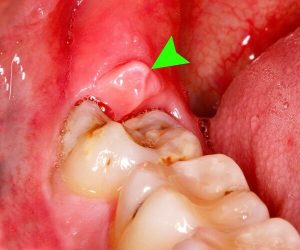Blog
Should You Have Your Wisdom Teeth Removed?

Wisdom teeth have long been associated as a source of problems. So, why do we have them?
It is believed our ancestors had larger jaws with more teeth. However, due to evolution, our mouths have become gradually smaller meaning we struggle to accommodate the extra teeth in adulthood.
Adults can have up to 32 teeth, the wisdom teeth appearing last, right at the back of the mouth. These commonly appear between the ages of 17 and 25, although sometimes even later. Some of us will never develop wisdom teeth, but most people have four wisdom teeth, one in each ‘quadrant’.
As our jaws and mouths have become smaller, it can lead to a series of problems. In most cases, the wisdom tooth will grow in at an angle, emerge partially or get trapped beneath the gum. If you have ever suffered from any of these complications, you will undoubtedly sympathise with the excruciating pain that can occur if these complications cause an infection (pericoronitis).
Pericoronitis is the inflammation of the gum tissue when a wisdom tooth partially breaks through the gum resulting in a flap appearing above the tooth. This causes bacteria to collect underneath the gum, making it difficult to clean the area properly causing irritation and the infection.
This is a temporary problem that can be dealt with effectively by using mouthwashes and antibiotics.
However, if the infection keeps reoccurring, it may be recommended by your dentist to get the tooth removed.
Wisdom teeth removal is a common procedure, with over 75,000 people in the UK having to endure the procedure each year.
Symptoms which might indicate pericoronitis:
- Painful and swollen gum tissue surrounding the area of the affected tooth.
- Difficulty opening your mouth.
- Pain when biting and chewing food.
- A bad smell or taste in the mouth.
- Discharge of pus from the affected gum tissue.
- Swelling on the affected side of the face.
- Muscle spasms in the jaw.
- Swollen lymph nodes under the chin.
Diagnosis of an infected wisdom tooth:
A dentist will diagnose cases of pericoronitis based on the symptoms outlined above and x-rays are usually taken to determine the position of the root and to decide whether there is enough room for the tooth to grow into a stable position.
Treatment of an infected wisdom tooth:
A wisdom tooth infection is unlikely to heal fully unless the flap of gum is removed, the wisdom tooth grows completely and at a straight angle, or if the wisdom tooth is removed.
To treat the affected tooth there are surgical and non-surgical options available.
Your dentist may recommend surgically removing the wisdom tooth to prevent further problems. Removing the wisdom tooth is the most suitable form of treatment if it is unclear whether the tooth will grow into a useful position without causing pain and discomfort or if the tooth has partially grown through and has started to decay.
Depending on how far the pericoronitis has progressed, antibiotics and other non-surgical procedures may be suggested by your dentist to help tackle the infection. In early diagnosis, non-surgical techniques are successful in treating the infection and reducing the need for surgery.
Oral antibiotics are effective for short term treatments of acute pericoronitis. These antibiotics are generally taken for a week and helps to reduce the pain and swelling associated with the infected wisdom tooth. Alternatively, you may be prescribed with an antimicrobial mouthwash or gel to help control the build-up of bacteria around the affected gum tissue.
Following treatment:
After getting your wisdom teeth removed, you are likely to experience some degree of pain and swelling. The length of recovery will depend of how badly your wisdom tooth was impacted/infected. Generally, recovery takes 3 to 4 days, but sometimes up to two weeks.
To help ease the pain, it is recommended to take prescribed or over the counter pain relief such as ibuprofen. Swelling can be reduced by placing an icepack over your jaw to reduce the inflammation and provide comfort. It is also important to refrain from eating solid foods and drinking alcohol and hot drinks for the first few days following surgery whilst your gum heals.
For both surgical and non-surgical treatments you will be advised by your dentist on how to keep your mouth clean to prevent further infection occurring.
Don’t delay treatment for wisdom teeth infection! Shifnal Dental Care is conveniently located between Telford and Wolverhampton, just 5 minutes from junction 4 of the M54 and a minutes’ walk from Shifnal train station.
We provide emergency appointments during Shifnal Dental Care opening hours including emergency appointments on Saturdays 9am-1pm, so if you are experiencing an infected wisdom tooth, don’t hesitate booking an appointment with us today!
Share this post:
